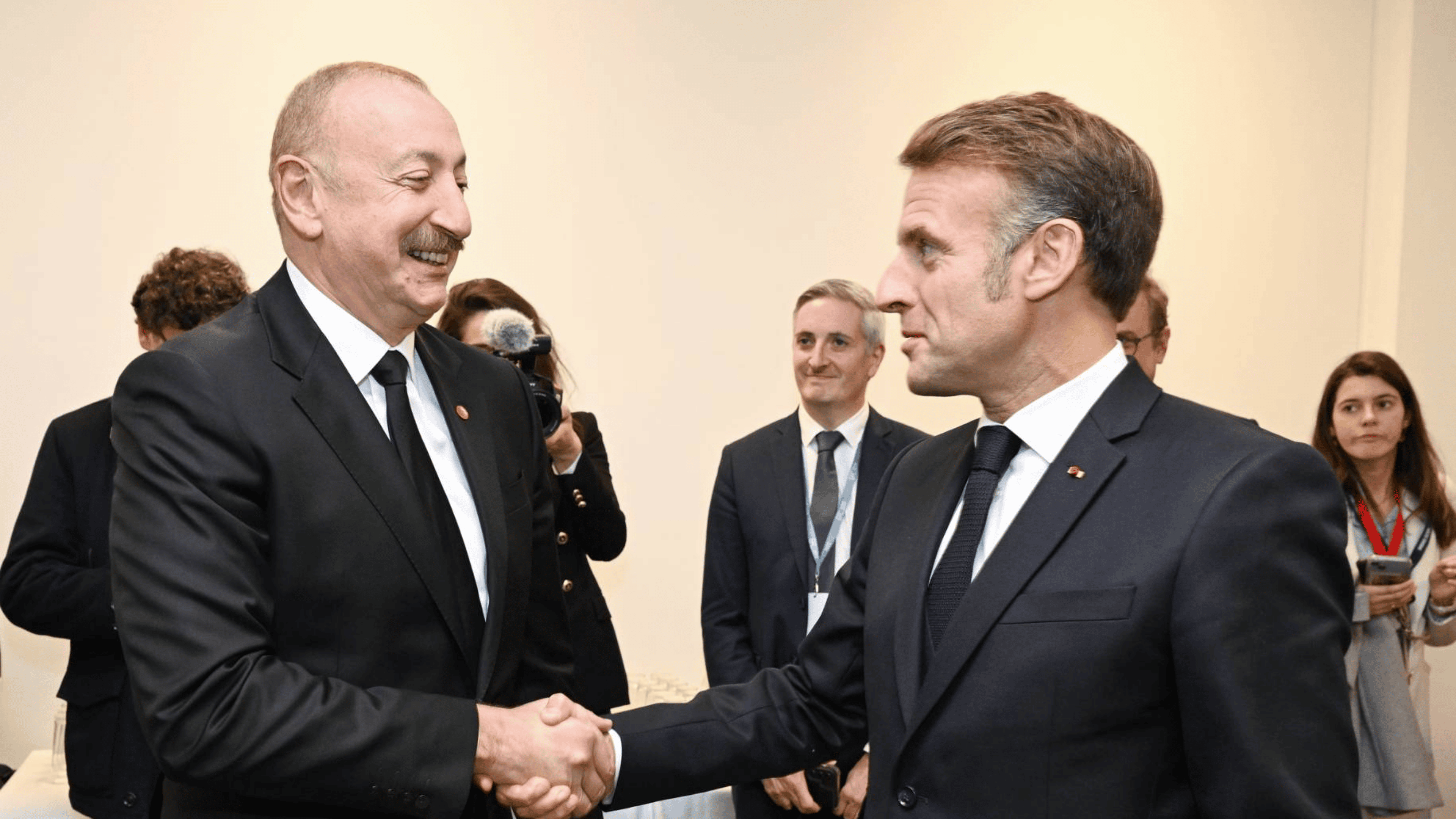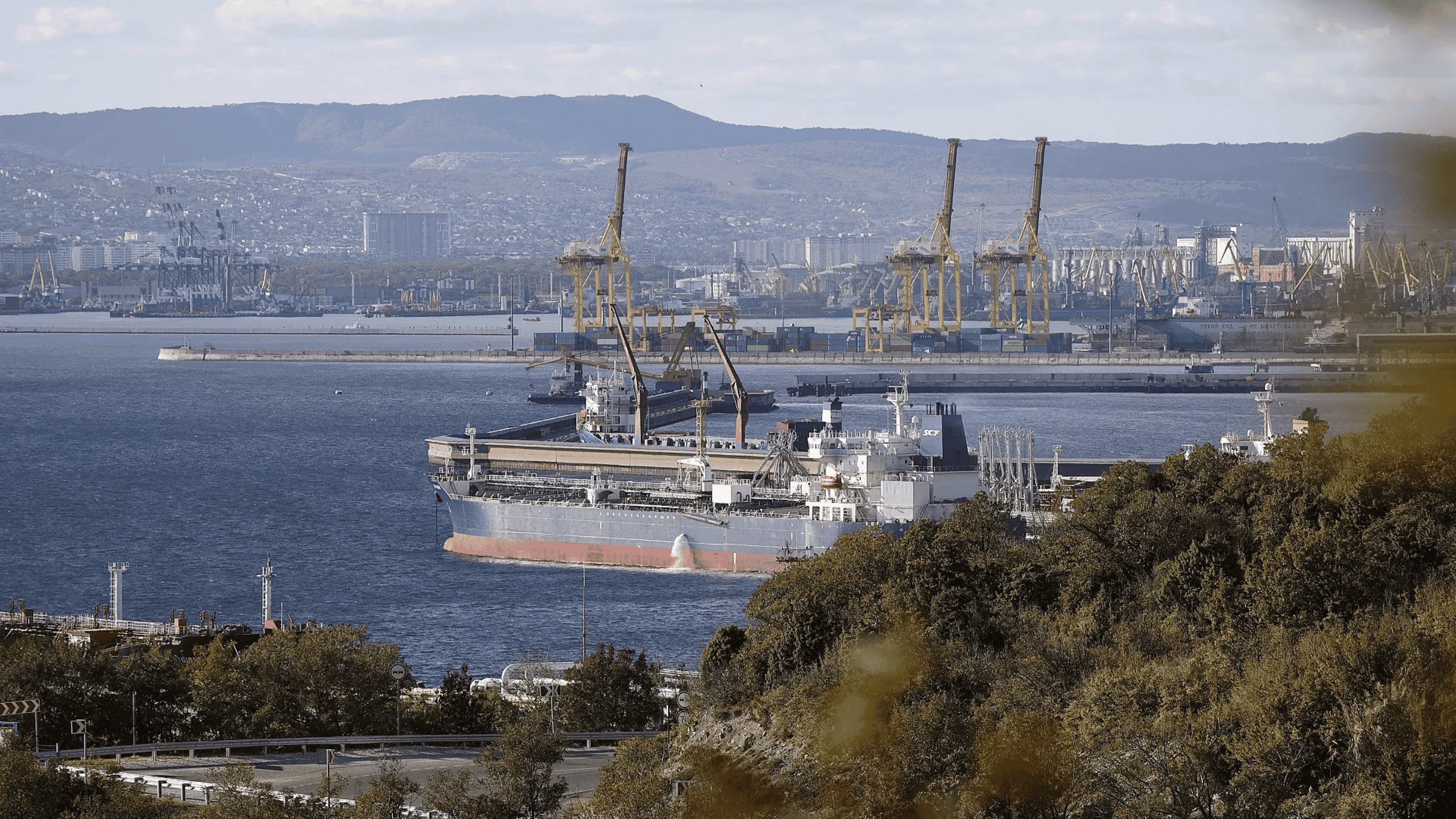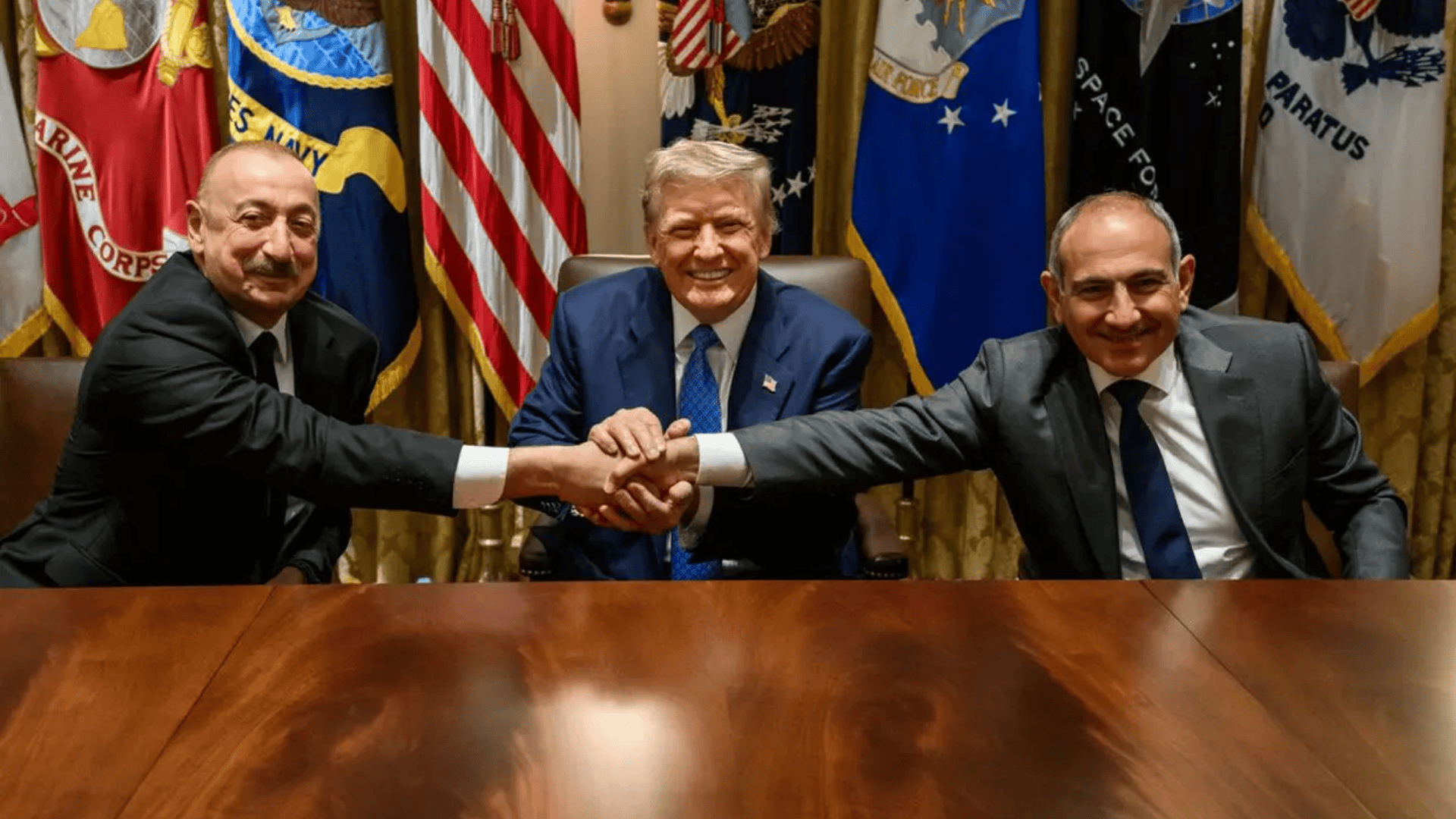London’s new strategy: sanctions on Russia and lifting the Caucasus arms embargo
UK lifts arms embargo
In October this year, the United Kingdom took two significant steps in its foreign policy. As part of its continued support for Ukraine, London expanded its sanctions against Russia, extending them to the energy sector, and simultaneously lifted a three-decade arms embargo on Armenia and Azerbaijan.
At first glance, these moves may seem unrelated. In reality, however, they form part of a broader, interconnected geopolitical and security strategy.
This article examines the strategic rationale linking these two decisions — and the motivations driving the shift in London’s policy.
UK foreign policy strategy: “Power and choice”
Against the backdrop of the war in Ukraine, the UK government has adopted a policy of “hard power” toward Russia, pushing economic sanctions to their limits. In its latest package of 90 new restrictive measures, London targeted Russia’s largest energy companies — Rosneft and Lukoil — as well as four oil terminals in China, 44 tankers from Russia’s “shadow fleet” exporting crude, and even India’s Nayara Energy.
The goal is to choke off the revenues feeding “Putin’s war chest,” with Britain making clear its determination to cut the Kremlin’s financial lifelines.
At the same time, the UK is exercising “soft power” and diplomatic outreach in the South Caucasus by lifting its 30-year arms embargo on Armenia and Azerbaijan. According to an official statement, the move aims to elevate bilateral ties with both countries to the level of strategic partnership and to support them in countering “hybrid threats.”
In other words, Britain is combining deterrence with engagement — punishing the aggressor through sanctions while offering cooperation to regional partners. This “carrot and stick” approach underlines London’s dual-track strategy: to project strength where confrontation is needed and foster influence where partnership is possible.
Azerbaijani connection: familiar names on the UK sanctions list
One of the most striking features of the UK’s new sanctions package against Russia was the inclusion of several Azerbaijani businessmen and executives — a move that signals London’s tougher stance on corruption and opaque capital flows, as well as the transnational nature of Russia’s economic networks.
Among those sanctioned are prominent figures such as Lukoil president Vagit Alekperov, “Kievskaya Ploshchad” chairman God Nisanov, and his business partner Zarakh Iliev — both well-known developers in Moscow with close ties to Kremlin-linked business circles.
Also added to the list were directors of the oil trading company Coral Energy Group — Ahmed Kerimov, Anar Medetli, Talyat Safarov, Etibar Eyub, and Tahir Karaev — as well as Shanlyk Shukurov, an executive at Mastel Makina.
Particular attention has been drawn to Fikret Tagiev, who, according to Radio Azadliq, headed Moscow’s Matrosskaya Tishina detention centre when lawyer Sergei Magnitsky died there in 2009. The UK government accused Tagiev of being responsible for Magnitsky’s ill-treatment and of concealing evidence related to his death.
The inclusion of these names shows that Britain’s sanctions target not only states but also the transnational networks of corruption and energy-linked capital. In doing so, London sends a clear signal to business actors embedded in Russia’s system but originating from other countries.
In this context, the appearance of Azerbaijani names underlines both the degree of integration between Azerbaijan’s energy sector and Russia’s economy — and the broader impact of the UK’s sanctions policy on the shifting economic and political landscape of the South Caucasus.
Security and regional balance
The UK’s recent decisions can also be seen in the context of its broader aim to reshape European security and the regional balance of power. Energy sanctions against Russia are intended to weaken Moscow’s global influence. Under the banner of “removing Russian oil from the market,” London seeks to cut off key revenue streams that fund the Kremlin’s military budget. This forms part of a wider strategy of economically isolating Russia within the European and Western alliance.
At the same time, by lifting the arms embargo on South Caucasus countries, the UK is expanding its presence in a region long considered within the spheres of influence of powers such as Russia and Turkey. The move signals a more active British role in the region’s security architecture. For decades, the UK maintained a cautious distance from conflicts in the Caucasus, focusing mainly on economic interests in Azerbaijan’s oil and gas sector.
By removing the embargo, London now signals its readiness to turn its economic footprint into political and military influence.
Ultimately, the UK is seeking to simultaneously undermine Russia’s energy dominance in Europe and establish itself as a new strategic power centre in the Caucasus, shifting the regional balance in its favour.
Diplomatic maneuver with a symbolic message
Sanctions and embargoes are not only tools of pressure but also powerful diplomatic signals. London’s actions can be interpreted as messages directed at different audiences.
Message to Europe and the international community:
The UK seeks to demonstrate determination in supporting Ukraine and to affirm that, together with its allies, it is “intensifying pressure on Putin.” As Foreign Secretary Yvette Cooper stated, “The United Kingdom and our allies are striking at Putin’s oil, gas, and shadow fleet, and we will not stop until he ends his aggressive policies.” Such statements reinforce Britain’s image as a leader within the Western alliance and reaffirm its commitment to deterrence for the sake of Ukraine’s security.
Message to the South Caucasus:
The lifting of the arms embargo sends a signal to Yerevan and Baku that London intends to invest in peace and stability in the region, playing a “constructive and practical role.” Senior British officials emphasized that they “warmly welcome” recent peace initiatives between Armenia and Azerbaijan and see them as a foundation for lasting peace.
Thus, London presents itself as capable of strategic flexibility—waging a tough struggle against aggression in one region while investing in reconciliation and cooperation in another.
The UK’s official statement highlights its intention to elevate relations with Armenia and Azerbaijan to the level of a strategic partnership. This move reflects London’s ambition to strengthen its influence in the region and to support the sovereignty of both Caucasus states in the face of “traditional and hybrid threats” posed by other states and non-state actors.
During his August visit to Yerevan and Baku, British Minister for Europe Stephen Doughty reached agreements on annual strategic dialogues and cooperation in the defense sphere—practical confirmation of the UK’s intention to play an active role in the Caucasus.
Time and context
The coincidence of the two decisions’ timing is notable. Their synchronicity shows that the UK is entering a new phase of foreign policy, marked by an active stance and a drive to seize the initiative on multiple fronts. While the European Union debates its 19th sanctions package and the new administration in Washington under President Donald Trump shows little inclination to impose further measures on Russia, London has taken the lead in striking Moscow’s energy revenues.
In other words, the UK aims to occupy a leadership role amid a power vacuum, demonstrating transatlantic solidarity while maintaining pressure on the Kremlin, which it views as a threat to its national security. At the same time, the geopolitical context in the South Caucasus is rapidly shifting: following the war between Armenia and Azerbaijan, mediated progress in Washington has seen both sides take historic steps toward a peace agreement.
It was at this moment that the UK seized the “window of opportunity” by lifting the long-standing arms embargo, effectively reshaping its regional policy.
This decision signals the end of the old status quo and demonstrates London’s intent to play a more active role in the South Caucasus in a new era. The timing was deliberate: the UK strengthened its position both in the West and the East.
Ultimately, the expansion of British sanctions on Russia and the simultaneous lifting of the arms embargo on Armenia and Azerbaijan are not isolated measures, but two sides of a single strategic approach. London’s aim is to seize the initiative in global confrontations, weaken rival power centers, and prevent any vacuum of influence in its sphere of interest.
UK lifts arms embargo























